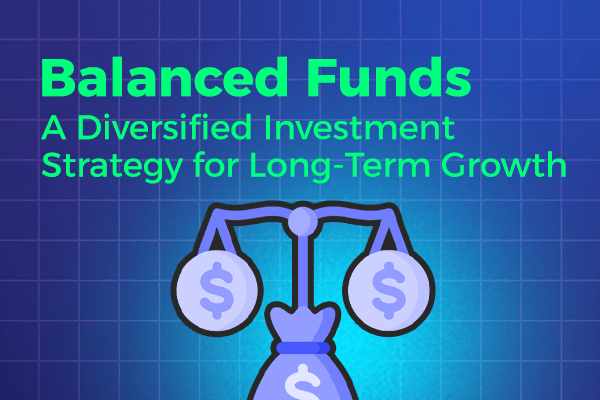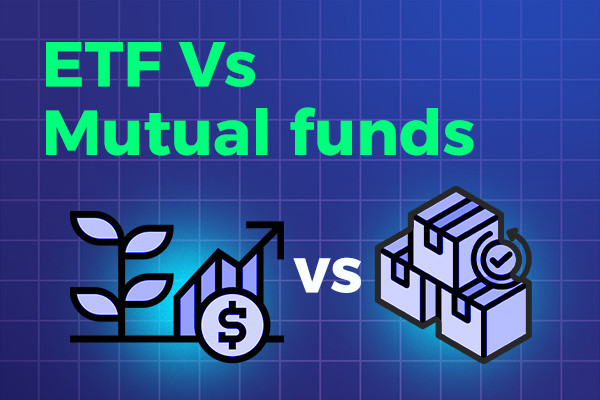Investors are always seeking new ways to diversify their portfolio and reduce risk. One such investment choice that is gaining popularity is money market funds.
These funds are low-risk and provide a stable return on investment, making them an ideal choice for those looking for safety in volatile markets.
Key Takeaways:
- Money market fund are a safe and effective way to diversify your portfolio.
- These funds are low-risk and provide a stable return on investment.
- Employing various strategies can maximize the benefits of investing in money market fund.
- Choosing the right fund and understanding the associated risks is crucial for success.
What are Money Market Funds?
Money market funds are a type of mutual fund that invests in short-term, high-quality debt securities, such as Treasury bills and commercial paper.
These funds are designed to provide investors with a low-risk, low-return investment option that can be used to diversify a portfolio and reduce risk.
Money market fund are actively managed, meaning that a portfolio manager is responsible for selecting the securities held by the fund. The goal is to maintain a stable net asset value (NAV) of $1.00 per share, meaning that the value of the fund does not fluctuate significantly. This allows investors to easily buy and sell shares in the fund without worrying about a loss of principal.
Benefits of Money Market Funds
Investing in money market funds offers several benefits for investors. These benefits include:
- Liquidity: Money market funds are highly liquid, which means that they can be easily bought and sold. This allows investors to access their cash quickly when they need it most.
- Low risk: Money market funds are considered to be low-risk investments because they focus on short-term, high-quality debt securities. This means that they are less likely to lose money than other types of funds.
- Diversification: Investing in money market funds can help investors diversify their portfolios. By spreading their investments across a variety of debt securities, investors can reduce their overall risk.
- Stable returns: Money market funds typically offer stable returns that are competitive with other low-risk investments. This can provide investors with a steady source of income.
- Convenience: Money market funds can be a convenient investment choice for investors who want to earn a return on their cash without having to actively manage their investments.
In summary, investing in money market funds can provide investors with a low-risk, convenient, and diversified way to earn a potentially stable source of income, while also maintaining a high degree of liquidity.
Strategies for Investing in Money Market Funds
Investing in money market funds is a good way to manage risk and diversify your portfolio. To make the most of your money, it’s important to have a strategy in place. Here are some strategies to consider:
1. Consider Your Investment Goals
Before investing in a money market fund, consider your investment goals. Do you want to preserve your capital or generate income? Depending on your goals, you may choose a different type of money market fund. For example, Treasury money market fund invest in short-term US government securities and may be a good option if you’re looking to preserve your capital.
2. Be Aware of Fees
Like any investment, money market fund come with fees. Some funds have higher expenses than others, so it’s important to be aware of these costs when choosing a fund. Look for funds with lower fees to maximize your return on investment.
3. Consider the Fund’s Holdings
It’s important to research the investments held by the money market fund you’re considering. Look at the credit quality of the investments and make sure they align with your risk tolerance. You can also look at the maturity date of the investments; money market funds with shorter maturities generally have lower risk.
4. Monitor Your Investment
Once you’ve invested in a money market fund, it’s important to monitor your investment regularly. Keep an eye on the performance of the fund and be aware of any changes in the fund’s holdings or strategy. This will help you make informed decisions about your investment.
By following these strategies, you can make the most of your investment in money market funds and achieve your financial goals.
Risks Associated with Money Market Funds
While money market funds are considered a low-risk investment, there are some potential risks that investors should be aware of.
The primary risk associated with money market fund is the possibility of the fund breaking the buck. This occurs when the net asset value (NAV) of the fund falls below $1 per share. This is rare but can happen if the investments made by the fund are not as safe as initially assumed.
Another risk is the potential for interest rate fluctuations. Money market funds invest in short-term, low-risk securities, so they are sensitive to changes in interest rates. When interest rates rise, the yield on the fund can increase, but when they fall, the yield can decrease.
Other Risks Include:
- The credit risk of the underlying securities held by the fund,
- The risk of market fluctuations, and
- The risk of investing in foreign currency-denominated securities.
Investors should carefully consider these risks and conduct thorough research before investing in a money market fund.
How to Choose the Right Money Market Fund
When it comes to choosing the right money market fund, there are several factors to consider. By evaluating these factors, investors can determine which money market fund is the best fit for their investment goals and risk tolerance.
Consider the Fund’s Investment Objective
One of the first things to consider when choosing a money market fund is the fund’s investment objective. Some money market fund are designed to provide high levels of liquidity, while others may focus on generating a higher yield. To determine which fund is right for you, consider your investment goals and how the fund’s objective aligns with those goals.
Review Fund Performance
Another key factor to evaluate when choosing a money market fund is the fund’s performance. Review the fund’s historic returns and compare them to the fund’s benchmark index or peer group. This will give you an idea of how the fund has performed over time and how it stacks up against similar funds.
Check the Fund’s Expenses
It is also important to evaluate a money market fund’s expenses, including its expense ratio. A higher expense ratio can eat into your returns, so it is important to look for a fund with low expenses. A fund’s net yield can give you an idea of the impact of expenses on your returns.
Assess the Fund’s Risk Level
While money market fund are generally considered low-risk investment choices, there are still risks to consider. Some funds may have exposure to credit risk or interest rate risk, which can impact the fund’s performance. Consider the fund’s holdings and overall risk level when evaluating whether it is the right choice for you.
By considering these factors and conducting thorough research, investors can choose the right money market fund to suit their investment needs.
Performance and Returns of Money Market Funds
When it comes to investment choices, it’s essential to consider the performance and returns to ensure that your money is growing as expected. Money market funds often provide stable returns, making them an attractive choice for investors looking for a safe haven for their money.
The performance of money market funds is primarily determined by the prevailing interest rates in the market. As the interest rates fluctuate, the returns on money market funds also tend to vary. Typically, money market funds provide a relatively stable rate of return compared to other types of investments.
Historically, money market funds have offered consistently high returns, but in recent years, returns have been modest due to low-interest rates. However, even during times of low interest rates, money market fund remain a relatively safe investment option, providing steady returns without much volatility.
The Importance of Monitoring Money Market Fund Performance
While money market funds typically offer stable returns, it’s essential to monitor their performance regularly. Investors must be aware of changes in interest rates and the impact they have on their investments. Monitoring the performance of money market funds can help investors make informed decisions about when to buy, hold, or sell their investments.
Investors can keep track of the performance of money market funds through various financial websites and analysts’ reports.
Diversifying Your Portfolio with Money Market Funds
Adding money market funds to your investment portfolio can be an effective strategy for diversifying your investments. By investing in money market funds, you can reduce your overall portfolio risk while earning steady returns.
Money market funds provide investors with a low-risk, low-volatility investment option that can complement other more aggressive investments, such as stocks. When used correctly, money market fund can help balance out an investor’s overall portfolio and provide a cushion during times of market volatility.
The Bottom Line
Money market funds can provide a safe and reliable investment choice for those looking to diversify their portfolio and reduce risk. While returns may be modest during times of low-interest rates, these funds remain a popular option for those looking to protect their investments and earn consistent returns. Monitoring the performance of money market fund is essential to making informed investment decisions and ensuring your money is working as hard as possible.
Conclusion
Money market fund are an excellent investment choice for those looking to diversify their portfolio and reduce risk. They offer a low-risk investment option with steady returns, making them ideal for short-term investments.
When choosing a money market fund, it is important to consider the fund’s expense ratio, credit rating, and liquidity. By employing the appropriate strategies, investors can maximize their returns while minimizing risks associated with these funds.
Despite their low-risk nature, money market funds are not entirely without risk. Investors should be aware of potential risks, including interest rate risk and credit risk, and take necessary precautions to protect their investments.
Overall, money market fund can offer a stable and safe option for investors seeking to diversify their portfolio and earn steady returns. By carefully selecting the right fund and monitoring their investment, investors can maximize their returns while minimizing risk.





